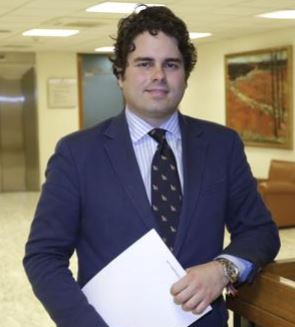 Asociación de Jóvenes Agricultores (ASAJA) is the largest agricultural professional organization in Spain with more than 200,000 members who work directly on farms, both owners and tenants, as well as family members who collaborate in the exploitation activities.
Asociación de Jóvenes Agricultores (ASAJA) is the largest agricultural professional organization in Spain with more than 200,000 members who work directly on farms, both owners and tenants, as well as family members who collaborate in the exploitation activities.
Therefore, since the project design, Life Resilience has had the support from ASAJA to represent and promote the interests of the agricultural sector. In addition, ASAJA is one of the partners that has more contact with international organizations from the headquarters they have in Brussels.
For this reason, José María Castilla, responsible of ASAJA Brussels, is responsible for hearing what is happening in the halls of the European Parliament on agricultural policies that affect Spain and report on successes, problems and shortcomings of Life Resilience project, co-financed by the Life program of the European Union.
What is Asaja’s role in Brussels as a Life Resilience partner?
J.C. From the Community Capital, our main task is to highlight in the agricultural forums and events the need to fight against Xylella fastidiosa. That’s why, we are a bridge between administrations and grassroot farmers. One of our main tasks is also to make know Life Resilience as a case of success to the stakeholders of the community “bubble”. Life Resilience has been able to unite public administrations, private companies and agricultural organizations under the same umbrella and the same issue.
In addition, ASAJA Brussels has already presented the project both in the Civil Oil Dialogue Group in the European Commission and in the COPA-COGECA Oil Working Group.
How does Europe see the problem of Xylella fastidiosa?
J.C. From our point of view, community authorities should increase their efforts to find a satisfactory solution for everyone. This effort must go through:
- Finance a replanting line of new species tolerant to Xylella fastidiosa in the affected areas and in other plantations.
- Promote a help line that allows the farmer to be compensated for loss of earnings; and once its exploitation has been pulled up that the public administrations take charge of all the expenses generated by this activity.
- Allow the exceptional use of all active substances that terminate vectors, such as the use of neonicotinoids that are so effective against carrier insects.
- Improve borders control, by standardizing the controls of all species that come from third countries because the vast majority of diseases that affect the European continent come from other countries outside the EU.
- Finally, strengthen research in the search for solutions from all areas that affect this disease: knowledge of the pathogen, effective procedures to control vectors, search for resistance, rapid analytical procedures to determine the presence of the bacteria before it is extended to other guests, transfer to the farmer of the progress made in his combat.
What are the actions that the ASAJA Brussels office will carry out in the future?
J.C. Once we have achieved the expected results on the project on obtaining new resistant olive varieties and sustainable production systems to induce resistance and reduce incidence in intensive production systems from the ASAJA Brussels office we will develop different activities. First, we will organize a workshop in COPA-COGECA to transmit the results to more than 22 million farmers and 18,000 cooperatives represented in the European Agricultural Agency. Secondly, we will organize a closing act, in May 2022, in the European Parliament to disseminate all the results obtained to date.
